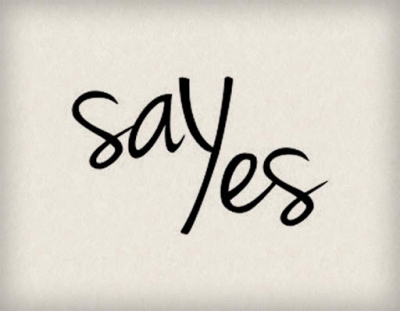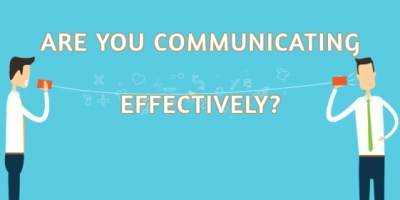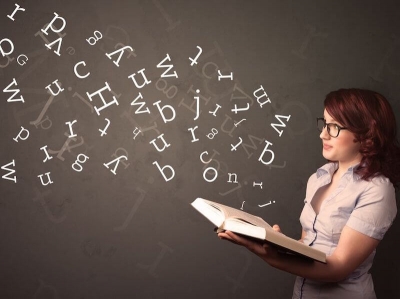
Coming to think of it, not everyone says “Yes” in the same way, though the meaning is the same – “I agree with you”, “I shall do what you want me to”, “What you say is right”. all of which means you agree generally with the person you are speaking to. But do we say “Yes” in the same tone and pitch always? Certainly not. Read the following aloud using the punctuation as dues. You will see how the simple word “Yes” can express different ways of agreeing.
[1] Yes! [2] Yes, yes, yes! [3] Yes. [4] Yes. [5] Yes? [6] Yes, [7] Yes – [8] Yeeeees..
Form a question each for these eight ways of saying “Yes”.
For example:
Question: Would you like a cup of ice cream?
Answer: Yes!
“Yes” is a very old word. It entered English before 900 AD and comes from the Old English word “gese” meaning “may it be so.” Before the 1600s, “yes” was often used only as an affirmative to a negative question (‘You have not read the book?”), and “Year” was the all-purpose way to say “Yes.” [Examples: “Will you marry me?”, “Are you going abroad?” – “Yea’) By the 1800s, “Yeah” was being used widely, and came to be labelled as an Americanism.
Popular substitutes
There is another aspect to saying “Yes.” You can speak in the affirmative without captain. [“Aye, aye, captain!) It is a formal response meaning “yes” in the British House of Commons. It is also an I. Etymologists [those who study the saying “Yes.” That is, you can say “Yes” using a variety of words and phrases that have no “yes” in them. Here is a list.
[1] Aye: You would have heard this word in movies where soldiers answer the accepted substitute for “Tea” in a voice vote in the U.S. House of Representatives. When it first entered English, it was often spelled origin of words) don’t know where it came from, but it appeared suddenly in the late 1500s and is still with us.
[2] Indubitably: The word mean “indubitably”, meaning “without doubt, has the prefix “in” which when added to words generally makes it negative. [active-inactive] “Indubitably” like many words with a negative prefix comes from the root dubitable. Strangely though, the negative version of the word has always been more popular than its root. Both “dubitably” and indubitably” come from the Latin word “dubitare” meaning “to doubt.”
[3] OK, Okey: We generally associate the word “Ok” with Americans, but not everyone agrees “Ok” is an Americanism. But it is possible it came from the 1840 American presidential election in which political candidates jokingly mis-spelled the phrase “all correct” as “oll korrect” and then shortened it to “Okey” and “Ok”. There are also stories that the word had its origin in military barracks and soldiers gave it this spelling, but we cannot say if that story is true.
An informal version of “Ok” is okey dokey”. It is a goofy version really and you don’t want to use it when you are serious about saying “Yes”. No Okey dokey when you are asked, “Will you collect the hall-ticket from your teacher” The right answer to this is: “Yes, certainly.”
[4] Sure: The word “Sure” is related to the Old French word with the same spelling, which meant “safe” or “secure.” Till the early 1500s, “Sure” meant “safe”. In the mid-1500s, people began to use the word “sure” when they meant “certainly” and “indubitably.” from which we get the phrases “to be sure” and “for sure“. Of course the phrase “sure thing” is without doubt an Americanism. It began to be used in the 1800s.
[4] Sure: The word “Sure” is related to the old French word with the same spelling, which meant “safe” or “secure” Till the early 1500s, “sure” meant “safe”. In the mid-1500s, people began to use the word “sure” when they meant “certainly” and indubitably,” from which we get the phrases “to be sure” and “for sure”. Of course the phrase “sure thing” is without doubt an Americanism. It began to be used in the 1800s.
[5] Yeah: This common casual variation of “yes” arose in the early 20th century in America. It is said with a drawl (elongated way) and is often used sarcastically. Since the 1980s, its usage of “yeah” appeared in the 1960s and may be a variation on the word “hooray.” However, it remains the least used among our “yes” alternatives. You hear this in sports stadiums when a match is going has risen dramatically, and is used widely in speech and writing.
[6] Yay: This possible alternative spelling on, right?
[7] By all means: This affirmative means that it is an “yes” in every way possible. [Example: “Can we invite all the school leaders for the meeting?” “By all means.”]
[8] Affirmative: People say “affirmative” when they want to say “yes” just because they feel very pleased with themselves. This form of saying “yes” is found mostly in North America, where you can also hear the phrase “in the affirmative.” [Example: “The last time I asked you for permission to watch football, you replied in the affirmative.
[9] Roger. You heard this in movies when the soldiers are talking on the radio. “Roger” is used to acknowledge receipt of a message. Of course, no one can stop us from using it in casual conversation, and we have been doing so for quite some time. [Example: “Shall we order pizza for dinner today?” “Roger!” We feel well informed when we say that right?]
[10] Uh-huh: Saying “Yes” this way needs a bit of practice, since it is mostly sound with no history of its origin. This sound is a verbalised shrug, which can mean “yes” or “no”. It is a non-committal way of saying ‘Yes.” [‘You can do it, I really don’t care.) When you say “uh-huh”, you need to nod as well, to make your “Yes” clear.
[11] Righto: This one is British. You can simply say “Right!” without the “o” in the end. But “Right” is informal and cheerful, don’t you think?
[12] Very well. This is a very useful phrase to convey that you accept because you don’t know what else to do. You are accepting something out of compulsion. Also out of exasperation. You are not excited about saying “yes” to the listener. Try saying this: “Oh, you want to use my mobile phone? Very well then. Here it is.”
[13] Yup: ‘Yup” and its variation ‘Yep” are such a joy to say. This is because of the “p” in the end that gives it a strong emphasis. [It is called the “implosive “p”.
Example: “Do you want to join the river cruise?” “Yep!)
[14] Right on: Even stronger than “Yep” is “Right on.” You say “Right on!” when you want to convey an overwhelming sense of approval.
[15] Totally: Try saying this, it makes you feel so superior! [Example: “people have no idea about cleanliness!” “Totally!”)
[16] Amen: This phrase goes all the way back to a Hebrew word, meaning “truth, certainty.” It is usually said at the end of a prayer or hymn, and stands for “so be it.” “Amen” is also used to express agreement or assent, sometimes in the form “Amen to that.” There are others too. I have heard people say “No mistake, very much so!”, “Certainly!”, “Of course”, and “You bet!” And now we have the emojis to help us say “Yes” without a single alphabet in the writing. Cool!
Picture Credit : Google






